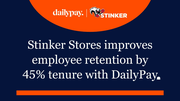Consumer Behavior
Understanding Gen Z consumer impact on the retail shopping experience
Dr. Steven Stovall, Ph.D., associate professor of management at Southeast Missouri State University, shares insight on what Gen Z wants and expects and what retailers should be doing for the consumer demographic.

April 3, 2025 by Judy Mottl — Editor, RetailCustomerExperience.com & DigitalSignageToday.com
The Gen Z consumer demographic is driving change in the retail customer experience given the generation is all about experiences — not convenience, not free shipping.
To delve deeper into what Gen Z wants and expects, as well as how this generation of consumers — the first to grow up with the internet — is leading a seismic shift in what retail success looks, like RetailCustomerExperience.com reached out to Dr. Steven Stovall, Ph.D., associate professor of management at Southeast Missouri State University, via an email interview.
Stovall is not the typical academic. He is a former corporate executive who managed a global sales team overseeing $7.5 billion in annual revenue and has continued his entrepreneurial pursuits, starting a restaurant, an antique resale business and a hops farm.
His unique combination of academic expertise and real-world business ownership makes him a compelling voice on how brands can effectively navigate changing consumer values.
Q. What impact is Gen Z having when it comes to the retail shopping experience. What are their expectations and are retailers responding to those expectations?
Stovall: Those born in the mid to late 1990s to the early 2010s have a significant impact not only with purchasing habits among their own generation, but how companies respond and market to them. The Gen Z consumer is a hodgepodge of previous generations — some things are new, but some harken back to earlier generations. For example, Gen X business owners felt that social media was the end-all, be-all for how a company interacts with buyers. Many businesses started in the 2010s saw no need for a website. After all, everything could be placed on Facebook. Fortunately or unfortunately, that tide has turned, and Gen Z wants both a social media presence and a well-designed website. The website does two things for them — first, and probably most important, it lends credibility to the company (it shows they're legit) and second, it's the website they go to discovering hours of operations, locations, offerings, and so on. The legitimacy factor can't be ignored as anyone can launch a free social media page, but a website requires effort and funds.
Q. What are Gen Z's consumer values and what is the demographic's priorities when it comes to shopping online and in-store?
Stovall: Their first priority is price. It's a given that they're young and don't have the disposable income of a millennial or a Gen Xer. So naturally, they look at the price first. However, they want a good value. They are not laser focused on the cheapest product, but the product that provides the best value. They are willing to pay a bit more for something that will last. Which brings us to the next priority and that's quality. They want the highest quality they can get for the lowest price possible. Again, this should not be interpreted as wanting the cheapest item, but the one that gives them the biggest bang for their buck. For online purchases, Gen Zers have an expectation that the item they receive is as good as or better than what they were expecting. In other words, if they see multiple photos of the item, read several reviews, and explore the specs of the item, what they receive in the mail must be exactly that or surprisingly better. They're savvy online shoppers and will quickly drop a brand or a platform if they're receiving something less than expected.
Q. What can or should retailers be doing to attract and retain the Gen Z consumer and what should they not be doing?
Stovall: Contrary to what you may have heard, this generation is probably the easiest to satisfy if retailers will make the effort to reinforce the buying decision. They're not any pickier or finickier than previous generations — they simply want to feel special. So, if your company ships the latest fashion clothes, clearly you can put it in a plain bubble mailer and the Gen Z buyer will be happy with it if it is what they were expecting. However, if the company also wraps the item in tissue paper, puts a thank you card in the package, or even wraps the item in a reusable tote before placing it in the bubble mailer, you will have instantly won over the buyer and will keep them coming back for more. The reason is because you reinforced the purchase by making them feel appreciated. This is very important for retailers to understand, and it is such a low-cost effort that shouldn't be ignored. Another fallacy about Gen Zers is this...many think that they will instantly jump at a purchase an influencer suggests. This is only partially true. Yes, they do pay attention to influencers and the brands they get behind, but they also notice what "average people" are posting on TikTok and other social media. If they see the same style or fashion multiple times and it draws them in, they're likely to make a purchase.
Q.Can you share insight on what brands are doing a great job appealing to the Gen Z consumer?
Stovall: The brands Gen Zers love are the ones you'd likely expect — Nike, Adidas, H&M, Shein, Temu, Zara, Depop, Poshmark, and lululemon. But any brand can join this group by making a concerted effort to truly understand Gen Z and reinforce their buying decisions. They're intelligent and know when they're being pandered to or whether you're genuine or not. Treat them as adults, provide them with a quality product, and positively reinforce their decision to business with you and this enigmatic demographic will be loyal customers.
 ChatGPT
ChatGPT Grok
Grok Perplexity
Perplexity Claude
Claude




